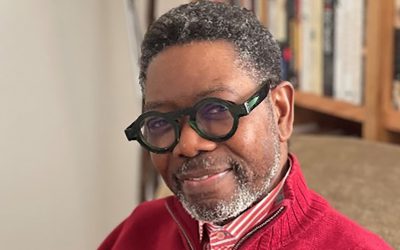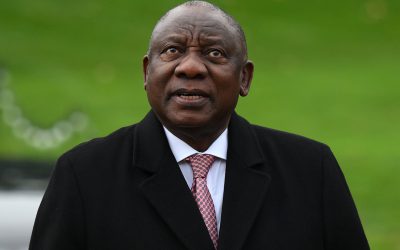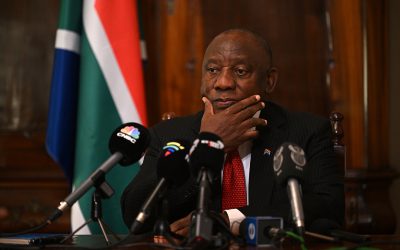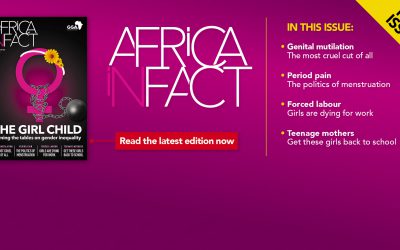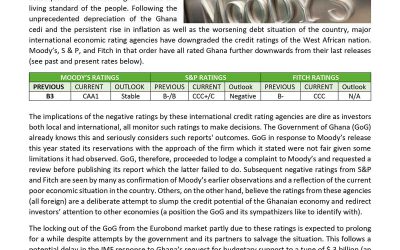Haastrup appointed to GGA board
Good Governance Africa (GGA), a not-for-profit company committed to improving governance performance across the continent, is pleased to announce the appointment of Deji Haastrup to its Board of Directors. Deji is a well-respected communications specialist, author,...
Statement on the new ANC leadership: No time for complacency
Former South African Health Minister Zweli Mkhize (L) congratulates South African President and re-elected leader of the African National Congress (ANC) Cyril Ramaphosa during the 55th National Conference of the ANC in...
Legal options for Ramaphosa in the wake of Section 89 report
During the global COVID-19 pandemic we overused the word “unprecedented”, but South Africa is now truly in an “unprecedented” moment. President Cyril Ramaphosa, from what the media reports and allies of the president have shared, was close to resigning last week,...
Rule of law essential even when political stakes are high
South Africa has awoken to news that a Section 89 panel report has recommended that the President, Cyril Ramaphosa, answer calls for his impeachment before a parliamentary committee regarding events at his farm, Phala Phala. Good Governance Africa urges parliament and...
Global North’s hand in climate change not recognised at COP27
Good Governance Africa: Statement on COP27 21 November 2022 COP27, the 27th iteration of the UN climate change conference, has just concluded in Sharm El Sheikh, Egypt. It was a tense and sometimes deeply emotional conference. One participant at the conference...
Africa in Fact Insights – our FREE digi-mag
Get our FREE monthly digi-mag available exclusively on WhatsApp.
OUT NOW: Africa in Fact – Issue 63
Africa in Fact This edition of Africa in Fact focuses on Africa’s girls, 308 million of them under the age of 18, far too many of whom find themselves at the bottom of the ladder when it comes to accessing health, education, and the other tools that offer the promise...
Economic downturn in Ghana
Managers of Ghana’s economy are being called to rise to the occasion in the face of worsening economic fundamentals across all critical sectors of the economy. From the downgrading of credit ratings to the depreciation of the country’s currency (the cedi) and inflation reaching a record high over the last 25 years, businesses’ survival and people’s livelihoods are at risk. The Government of Ghana (GoG), led by H.E. President Nana Addo Dankwa Akufo Addo, is now racing against time to rescue this dire economic situation, in the second largest economy in West Africa, by introducing urgent and difficult interventions. These include an application for an extended IMF credit facility, an injection of fresh capital from syndicated loans, and more cuts in government expenditure. However, it is yet to be seen if these measures will be enough to stop further economic decline in the face of Ghana being continually blocked from the international bond market, and the low levels of internal revenue inflows.
WEBINAR: Decentralisation and Local Governance in Eastern Africa
Good Governance Africa-Eastern Africa (GGA-EA) has organized a webinar to disseminate the findings of the research project on Decentralization and Local Governance in Eastern Africa. The webinar discusses research findings from Ethiopia, Rwanda and Sudan. Experts from...
Mining Indaba Panel Discussion
Haastrup appointed to GGA board
Good Governance Africa (GGA), a not-for-profit company committed to improving governance performance across the continent, is pleased to announce the appointment of Deji Haastrup to its Board of Directors. Deji is a well-respected communications specialist, author,...
Statement on the new ANC leadership: No time for complacency
Former South African Health Minister Zweli Mkhize (L) congratulates South African President and re-elected leader of the African National Congress (ANC) Cyril Ramaphosa during the 55th National Conference of the ANC in...
Legal options for Ramaphosa in the wake of Section 89 report
During the global COVID-19 pandemic we overused the word “unprecedented”, but South Africa is now truly in an “unprecedented” moment. President Cyril Ramaphosa, from what the media reports and allies of the president have shared, was close to resigning last week,...
Rule of law essential even when political stakes are high
South Africa has awoken to news that a Section 89 panel report has recommended that the President, Cyril Ramaphosa, answer calls for his impeachment before a parliamentary committee regarding events at his farm, Phala Phala. Good Governance Africa urges parliament and...
Global North’s hand in climate change not recognised at COP27
Good Governance Africa: Statement on COP27 21 November 2022 COP27, the 27th iteration of the UN climate change conference, has just concluded in Sharm El Sheikh, Egypt. It was a tense and sometimes deeply emotional conference. One participant at the conference...
Africa in Fact Insights – our FREE digi-mag
Get our FREE monthly digi-mag available exclusively on WhatsApp.
OUT NOW: Africa in Fact – Issue 63
Africa in Fact This edition of Africa in Fact focuses on Africa’s girls, 308 million of them under the age of 18, far too many of whom find themselves at the bottom of the ladder when it comes to accessing health, education, and the other tools that offer the promise...
Economic downturn in Ghana
Managers of Ghana’s economy are being called to rise to the occasion in the face of worsening economic fundamentals across all critical sectors of the economy. From the downgrading of credit ratings to the depreciation of the country’s currency (the cedi) and inflation reaching a record high over the last 25 years, businesses’ survival and people’s livelihoods are at risk. The Government of Ghana (GoG), led by H.E. President Nana Addo Dankwa Akufo Addo, is now racing against time to rescue this dire economic situation, in the second largest economy in West Africa, by introducing urgent and difficult interventions. These include an application for an extended IMF credit facility, an injection of fresh capital from syndicated loans, and more cuts in government expenditure. However, it is yet to be seen if these measures will be enough to stop further economic decline in the face of Ghana being continually blocked from the international bond market, and the low levels of internal revenue inflows.
WEBINAR: Decentralisation and Local Governance in Eastern Africa
Good Governance Africa-Eastern Africa (GGA-EA) has organized a webinar to disseminate the findings of the research project on Decentralization and Local Governance in Eastern Africa. The webinar discusses research findings from Ethiopia, Rwanda and Sudan. Experts from...


